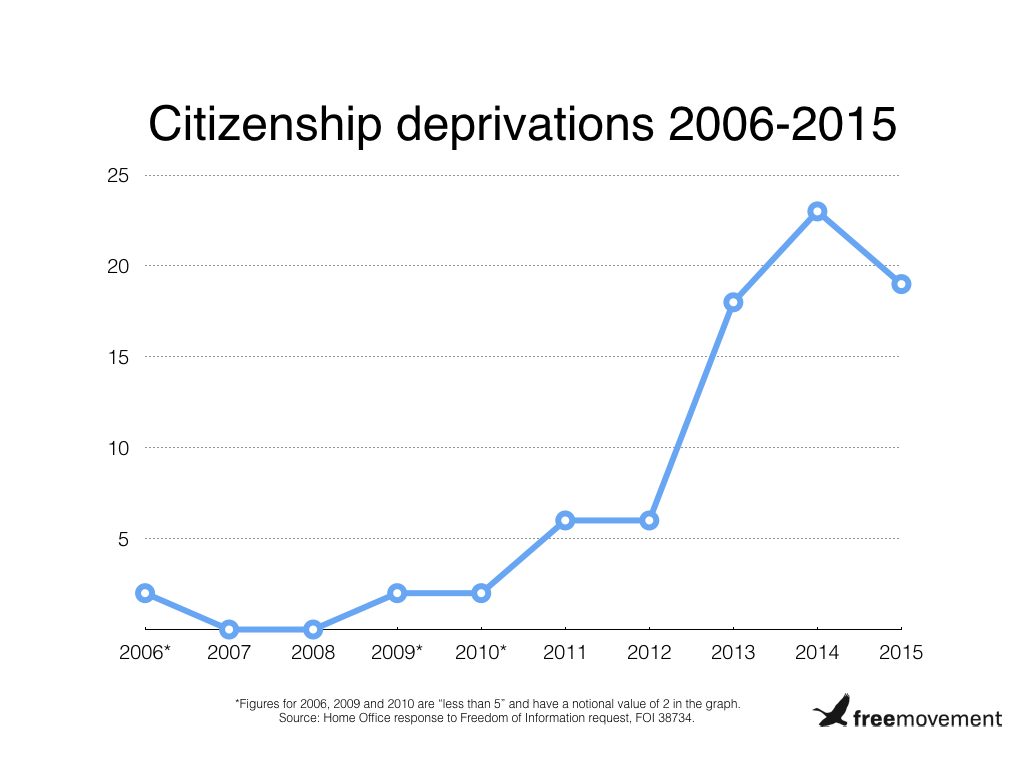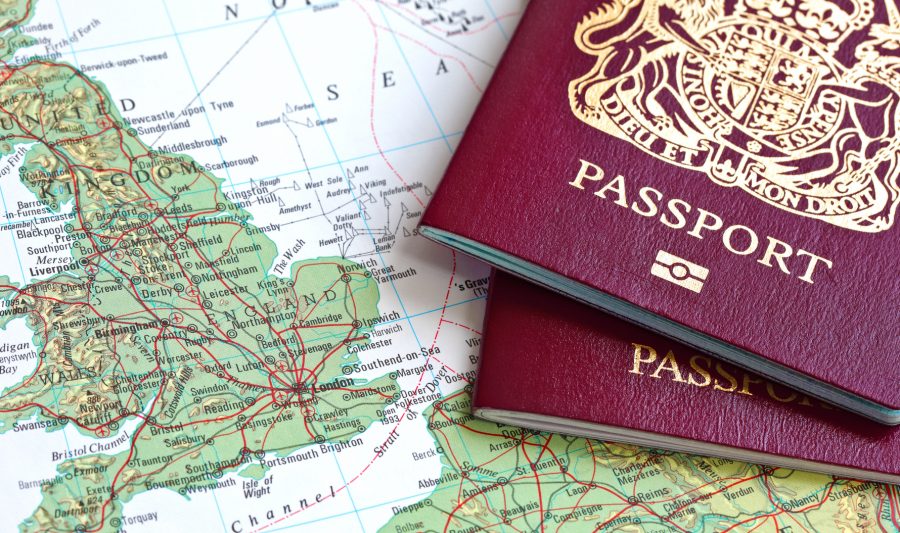The UK has stripped 81 individuals were stripped of their citizenship using deprivation powers between 2010 and 2015, according to a freedom of information request.
Of these 81, 36 were deprived of citizenship under the public good power and the remaining 45 being for fraud, false representation or concealment of a material fact.

British citizenship was first put on a statutory footing by the British Nationality Act 1948. Before that there were no such thing as citizens, only subjects. British nationality law is now governed by the British Nationality Act 1981, and that is where we find the power to deprive a British citizen of his or her citizenship status.
Originally the BNA 1981 set out what is now the public good deprivation power as follows, in section 40(3):
Subject to the provisions of this section, the Secretary of State may by order deprive any British citizen to whom this subsection applies of his British citizenship if the Secretary of State is satisfied that that citizen—
(a) has shown himself by act or speech to be disloyal or disaffected towards Her Majesty; or
(b) has, during any war in which Her Majesty was engaged, unlawfully traded or communicated with an enemy or been engaged in or associated with any business that was to his knowledge carried on in such a manner as to assist an enemy in that war; or
(c) has, within the period of five years from the relevant date, been sentenced in any country to imprisonment for a term of not less than twelve months.
The depriving power only applied to those who acquired British citizenship by registration or naturalisation. British citizens by birth could not be deprived of their citizenship. In practice, deprivation powers were not used at all between 1973 and 2002.





